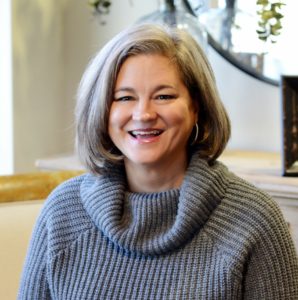
Of all the leadership traits, the one I find most intriguing has to be curiosity. It’s a characteristic I believe takes focused effort to strengthen.
For some, this might be a stretch. Aren’t we just born curious? For others of us, I believe it’s a trait we develop like a hard-to-see muscle. It’s a trait that, with effort, we can improve. This matters so deeply because once we stop being curious, we lose.
For a leader with competition in her top five strengths, losing isn’t an option. So, I’ve been thinking a lot lately about strengthening my curiosity muscle. Why do we lose when we stop being curious?
We lose because we shut people down. We don’t ask the hard or even easy questions forcing us to accept what is without a challenge. A challenge, a conflict, a healthy debate is a good thing, and open-ended questions are the best tool to help us get there.
Asking open-ended questions takes practice. We are quick to ask leading questions, to offer a suggestion hidden in a question and to judge. Asking a question simply because we are curious takes discipline and thoughtfulness.
Asking a question to hear the answer you already think you know is a poor use of time. Read that again. How often do we do that? I’ll ask a question because I already know how that person will answer, and their response will help bolster my case. Lazy. That is what that is. It’s an easy way, a quick way to build consensus, and, as I’m writing this first blog of 2022, I’m realizing I did this just today. I wasn’t curious enough. Vulnerable leaders are always learning.
We lose when we stop being curious because being close-minded sucks. Close-minded means we have one track, tunnel vision. I even heard today, “She can’t see beyond her own nose.” That is close-minded, which limits possibilities, and that certainly will lead to exhaustion and burn out. Stop doing it.
Be open to the possibilities. Notice the word possibilities isn’t a negative or a positive word, it’s just a neutral word. Without genuine curiosity, possibilities disappear.
Being a leader with conviction doesn’t mean we aren’t curious. We can be strong leaders and still be passionately curious. Perhaps the biggest challenge we face today is leading during this time of such great uncertainty has dimmed our desire to be curious and consider the whys. Ask the questions without knowing the answers, and then be even more curious about the answers we do receive.
Perhaps it’s time for us all to flex our curious muscle and lead with great questions: What if? Why do you feel that way? What is the absolute worst that can happen? What is the best possible outcome? What do you need from me?
One of the simplest questions that we might just need most right now: How are you? As a leader, it’s our job to listen intently… with an open heart and mind.
When we stay curious, we win.
Julie Thorson was the 2018 recipient of the LeadingAge Dr. Herbert Shore Outstanding Mentor of the Year award. Thorson is currently a coach for the Leading Age’s Larry Minnix Leadership Academy. Her “Living Leadership” blog was named the 2016 “Best New Department” Bronze Award winner by the American Society of Health Publication Editors. The president and CEO of Friendship Haven, a life plan community in Fort Dodge, IA, Thorson is a coach’s daughter at heart. A former part-time nursing home social worker, she is a licensed nursing home administrator and completed Leading Age’s Leadership Educator Program last summer.
The opinions expressed in McKnight’s Long-Term Care News guest submissions are the author’s and are not necessarily those of McKnight’s Long-Term Care News or its editors.




